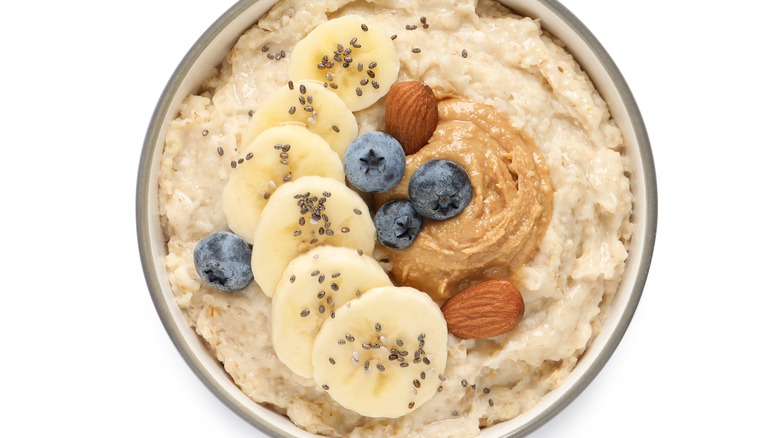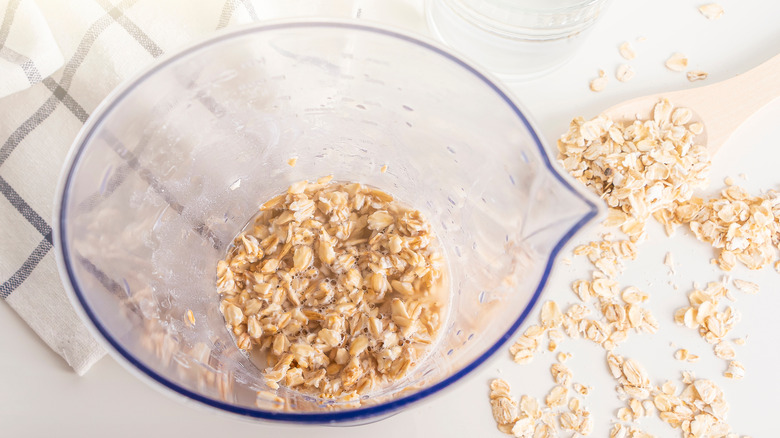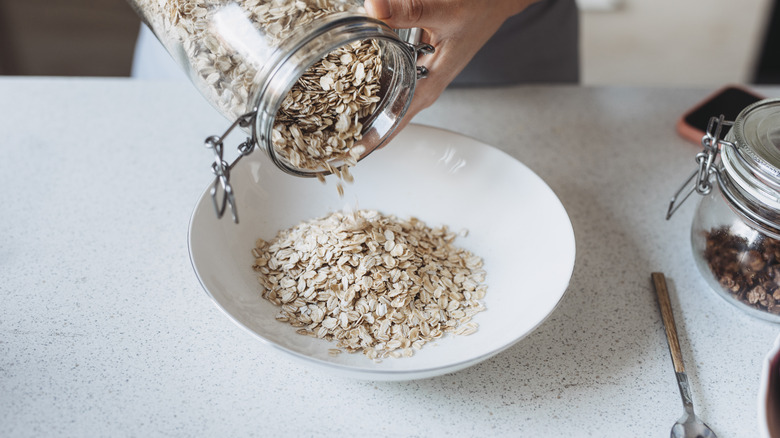The Simple Prep Hack For The Creamiest Oatmeal Ever
Oatmeal is one of those foods that some people have difficulty embracing, while others easily make it part of their daily breakfast routine. If you haven't fallen for oatmeal yet, try it again with a different cooking technique or new ingredients, and you may be pleasantly surprised. If you already love it, you likely have your own technique to make the perfect bowl of oatmeal. Either way, if you haven't tried soaking your oats before cooking, you're missing out on oatmeal that's creamier and easier to digest.
It's well established that your morning bowl of oatmeal is a nutritionally-packed offering — one worth getting to know for improved digestion and heart-healthy perks. Whether you're looking for a bit of spin on your traditional oats preparation or are working to find a combination that works for your dietary situation, giving your oats a soak might be the answer you're looking for.
Benefits for texture and shortened cooking time
Cooked oatmeal takes on a creamier texture when you pre-soak your oats compared to unsoaked grains. Soaking allows the oats to hydrate, plump up a bit, and remain fluffy rather than dense when cooked. The traditional no-soak method on the side of the iconic Quaker Oats container produces oatmeal that retains more bite and results in a lumpier texture. This isn't necessarily a bad thing, but if you like a creamier texture, give the soaking method a try. Also, consider mixing in milk or adding tea to your oatmeal when you cook up your oats.
Soaking oats before cooking is an easy way to relax them before putting the pot on to boil, which shortens the required cooking time. Most cooks recommend an overnight soak, but some say six hours will do the trick. If you're in a hurry, even soaking oats for half an hour before turning up the heat on the stove can shave a few minutes off the process.
Soaked oats and digestion
Pre-soaking your oats not only affects texture and cooking time but also makes your oatmeal easier to digest. This is a bit of a double-edged sword when it comes to oats. On the one hand, they contain fiber that helps you feel full longer while contributing to good gut health. On the other hand, uncooked oats are difficult for the body to digest, thanks to phytic acid. This is a source of protection for the oats that makes them difficult to break down. However, soaking oats subdues the phytic acid, allowing the body to digest oats more easily.
Phytic acid also has another annoying trait. It's a magnet for minerals, meaning it locks the good stuff like zinc, iron, and calcium into the grain beneath its protective coating, making it difficult for the body to absorb. However, soaking and cooking grains dissipate that protective coating, allowing the body to embrace all the nutritional goodness. Whether you prefer a sweet, creamy, fruit-topped breakfast or a savory oatmeal for dinner, if you've had a hard time digesting oats in the past, try the pre-soak hack to see if you get better results.


